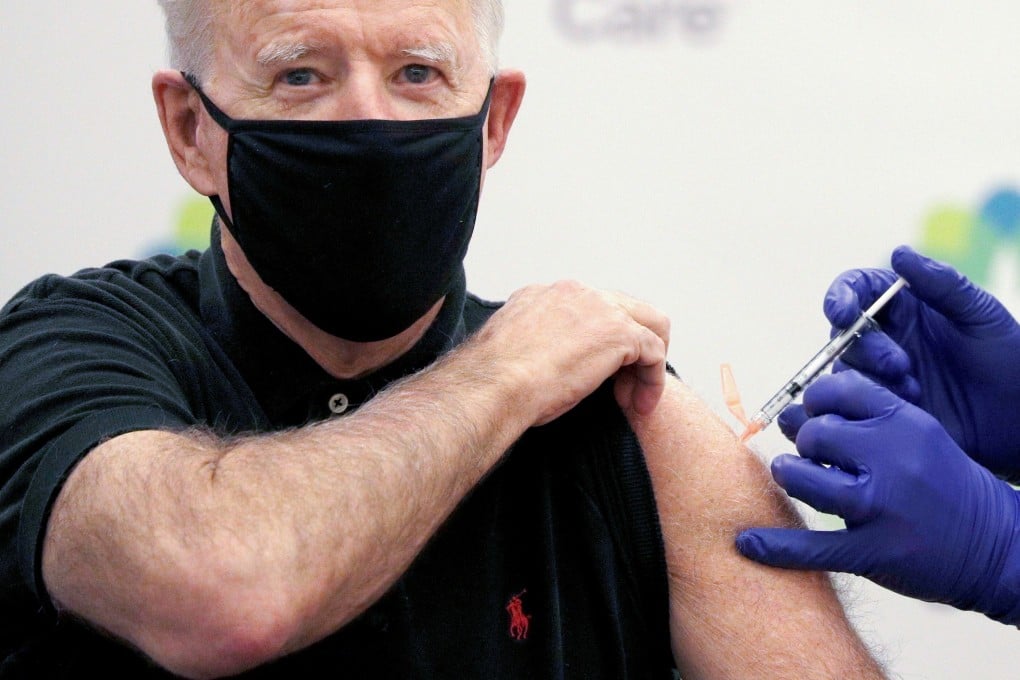Advertisement
Asia doesn’t need to rush into broad vaccine mandates like the US
- Compulsory vaccinations targeting specific high-risk workers or sectors make more sense
- But there needs to be a fair and firm system of penalties so as to not add to the mental health pressures of an ongoing pandemic
Reading Time:3 minutes
Why you can trust SCMP
15

When US President Joe Biden announced sweeping measures earlier this month to mandate Covid-19 vaccinations for around 100 million people, he said the country’s “patience” had worn thin. An estimated 80 million Americans who can get vaccinated still refuse to do so.
“Your refusal has cost all of us,” Biden said, referring to the rise in cases and deaths from the more-virulent Delta variant.
The same frustration is playing out in Singapore, an island slightly smaller than New York City, where some 82 per cent of the eligible population are vaccinated, leaving an estimated 500,000 people who are choosing not to get jabbed.
Advertisement

Public disgruntlement against the unvaccinated is growing, for they are seen as delaying the city state’s full economic reopening and potentially overloading the health care system if they catch Covid-19. In recent weeks, there has been discussion on whether Singapore should make the jabs mandatory – especially for the elderly, of which an estimated 87,000 or so remain unvaccinated, according to a Reuters report. Infectious-diseases experts interviewed by the media are largely supportive of such a move, even as they acknowledge it would be politically challenging to make the Covid-19 jab compulsory.
Advertisement
Indonesia is probably the only country that has pledged to punish all those who refuse vaccinations, but since the government’s announcement in February it’s unclear how well this rule has been enforced, given that the country still faces vaccine shortages. Malaysia, where 80 per cent of adults have been fully vaccinated, is considering making vaccines compulsory for public servants – with those who refuse facing punishment. Elsewhere in Southeast Asia, the topic of broad vaccine mandates has not really come up as most countries focus on boosting inoculation rates.
Advertisement
Select Voice
Select Speed
1.00x
